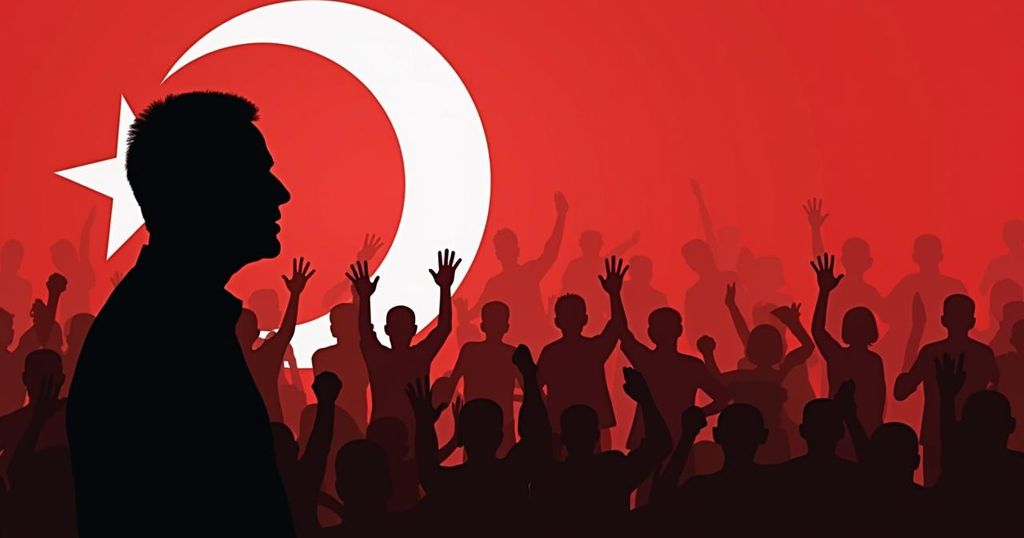Kais Saied Leads Tunisia Presidential Election Amidst Political Turbulence

Tunisian President Kais Saied is projected to win the presidential election with 89.2 percent of the vote, based on exit polls. The election, marked by a low voter turnout of 28 percent, has taken place against a backdrop of political tension and opposition imprisonment. Saied’s main rivals garnered minimal support, reflecting the uphill battle faced by the opposition under his administration. Electoral reforms and judicial independence have been compromised, leading to questions about the legitimacy of the electoral process and Tunisia’s democratic future.
According to an exit poll conveyed by state television, Tunisian President Kais Saied appears poised to secure victory in the presidential election, having garnered an impressive 89.2 percent of the votes. This election saw a relatively low voter turnout, reported at 28 percent, reflecting the contentious political climate leading up to the polls held on Sunday. The official election results are expected to be released on Monday evening by the Independent High Authority for Elections of Tunisia (ISIE). This election was characterized by the absence of major opposition candidates, as many prominent political figures have faced imprisonment under various allegations. Notably, Rached Ghannouchi, the head of the opposition Ennahda party, has been among those detained. Saied’s only notable contenders included his former ally turned critic, Zouhair Maghzaoui of the Chaab Party, who reportedly received 3.9 percent of the vote, and business mogul Ayachi Zammel, who, despite once being viewed as a significant challenger, garnered only 6.9 percent following his recent imprisonment. Voting amidst escalating political tensions, the electoral commission, appointed by President Saied, disqualified three candidates, provoking protests from both opposition factions and civil society groups. Observers noted that Saied’s administration appears to have systematically undermined democratic processes since he came to power, particularly following his controversial moves in 2021 to dissolve the parliament and revise the constitution. Critics assert these actions have eroded the democratic gains established post-Arab Spring. Under Saied’s rule, Tunisia has also faced dire economic challenges, with stagnating growth, rampant inflation, and high unemployment fueling public discontent and protests. Additionally, in a recent controversial decision, lawmakers associated with Saied removed the administrative court’s authority over electoral disputes—the body viewed as Tunisia’s last independent judicial entity after the 2022 dismissal of numerous judges and tampering with the Supreme Judicial Council. The political landscape in Tunisia remains fraught with uncertainty as the governor forecasts regarding voter turnout were not met, hinting at disillusionment among the electorate about the electoral process and the direction of governance in the country. In summary, as Kais Saied maintains a decisive lead ahead of the official election results, Tunisia’s future appears increasingly precarious, teetering between authoritarianism and the remnants of democratic aspirations.
The political landscape of Tunisia has been tumultuous since the 2011 Arab Spring, which resulted in the ousting of long-time President Zine El Abidine Ben Ali. In his wake, the newly formed democratic government witnessed considerable challenges, including the rise and fall of political parties and significant social unrest related to economic conditions. Kais Saied was elected president in 2019 amid this instability, and his rule has steadily been marked by actions perceived as autocratic, including consolidating power, disbanding the parliament, and modifying the constitution in such a way that critics claim undermines democratic institutions. As Saied navigates the complexities of running a nation with high unemployment and inflation, his administration’s relationship with potential challengers has grown adversarial, giving rise to protests over perceived injustices against prominent political figures. This recent election was conducted under the shadow of these events, exacerbated by the jailing of key opposition leaders and the controversial decisions made by an electoral commission arguably loyal to Saied, raising further questions about the legitimacy of the electoral process and future governance.
Kais Saied’s anticipated electoral success, marked by a commanding percentage of the vote according to exit polls, underscores an ongoing consolidation of power that has characterized his presidency. With significant political figures in opposition incapacitated or imprisoned, the electoral landscape reflects a concerning trend toward diminishing democratic engagement in Tunisia. As economic woes persist and civil unrest becomes more common, the legitimacy of Saied’s leadership remains a topic of fervent debate among the populace and political analysts alike. The upcoming official announcement of election results will further clarify the trajectory of Tunisia’s political future.
Original Source: www.aljazeera.com







